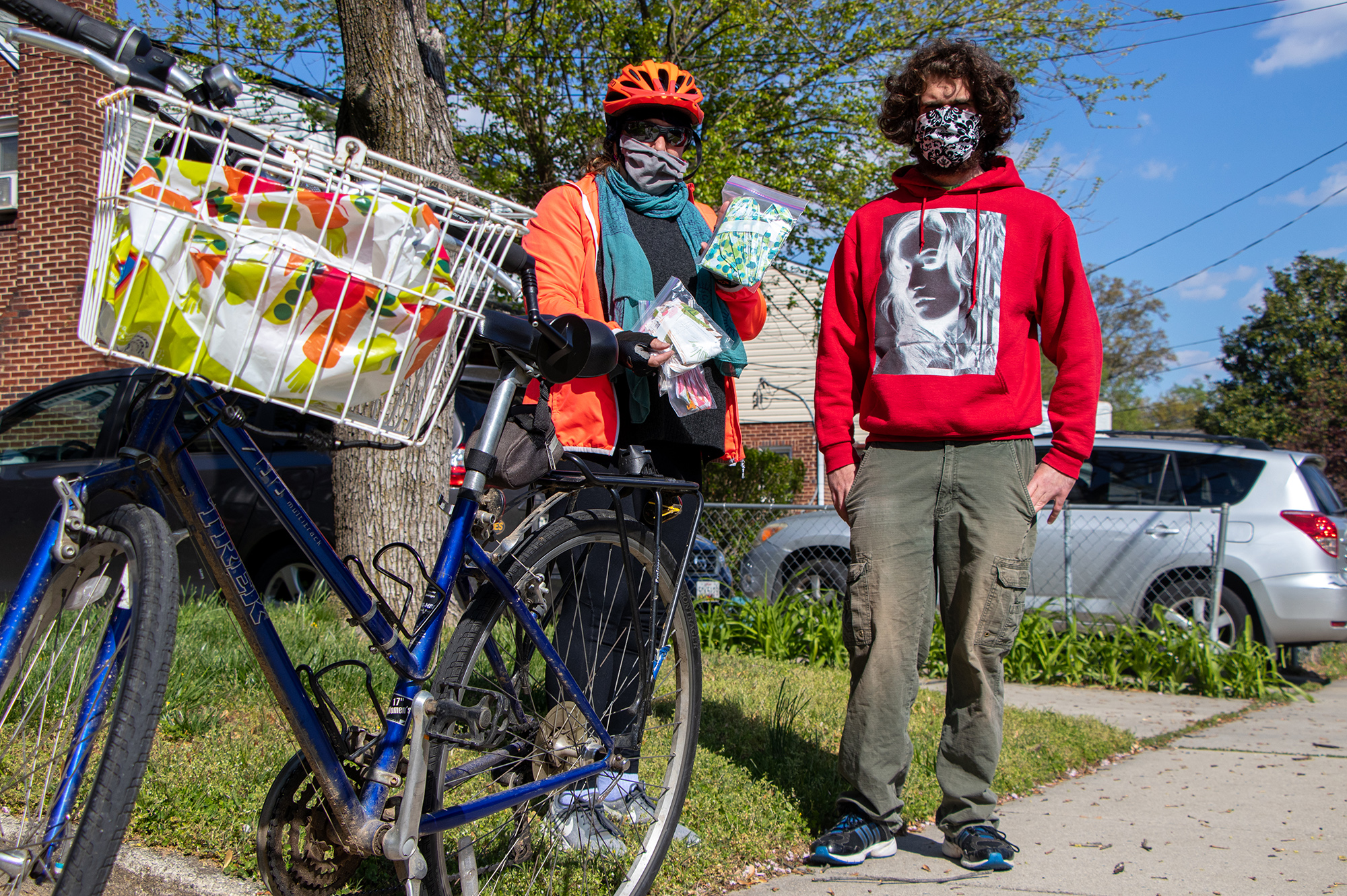Hyattsville resident and costume designer Kathleen Geldard sews for about three hours every day.
When theaters across the country closed in response to the novel coronavirus pandemic, the University of Maryland graduate took to sewing face masks for neighbors, friends and family as a way to keep her mind active while out of work.
“I thought, naturally, I should start making masks, because everybody needs one,” said Geldard. “You can’t even go to a store without one, really.”
Geldard is one of at least 16 volunteers along Route 1 rising to meet the crisis by joining together to sew and distribute masks in the community. The group, called the Route 1 Mask Match, hopes to help especially vulnerable populations — such as health care workers, grocery store employees, senior citizens and immunocompromised people — amid the COVID-19 outbreak, said T. Carter Ross, a Hyattsville resident who helped organize the group’s efforts.
As case numbers continue to rise, Maryland Gov. Larry Hogan issued an executive order effective Saturday requiring people shopping in grocery stores, pharmacies and retail stores — as well as those on public transit — to wear face coverings. The order comes days after a similar mandate went into effect in Prince George’s County.
[Read more: “Our central duty”: College Park service groups run errands for those in need]
“There definitely are going to be more and more people who need masks to go on important errands to the pharmacy and grocery store,” Ross said. “We’re just trying to help with that immediate need.”
Within the network, people can coordinate, donate sewing materials, sew themselves or deliver the masks, Ross said. So far, they’ve recruited people all along the Route 1 Corridor — from Greenbelt and Beltsville down to Mount Rainier.
People can also request masks by filling out a form on the group’s website. The group has already received over 850 requests, Ross said, and nearly 230 masks have been delivered.
“We’re basically trying to be that connection point,” Ross said.
For Lise Nau, contributing to Route 1 Mask Match means curbing the spread of the coronavirus in Prince George’s County, which has become the epicenter of the disease in Maryland, with over 3,300 confirmed cases.
Nau said she’s already sewn one set of masks and is currently working on another set. As someone over the age of 60, she knows she’d be more susceptible to complications if she contracted the virus herself — making the work personal.
“I want to get masks available to people that would like to wear them but can’t afford to … [or] people who are, like myself, in a particularly vulnerable population,” said Nau.
Senior-village-type projects, such as Hyattsville Aging in Place and Neighbors Helping Neighbors in College Park, have been among the masks’ recipients.
[Read more: Maryland Gov. Hogan orders face coverings in retail stores, transit systems]
Hyattsville Aging in Place, a grassroots organization dedicated to serving seniors in the community, has benefitted from Route 1 Mask Match, said Lisa Walker, the village’s chairperson.
Route 1 Mask Match has already delivered a set of 10 masks to the organization and will continue to supply free masks to seniors during a time when others are selling face coverings for a fee, Walker said.
“I think [Route 1 Mask Match] has really solved some major problems for us,” said Walker. “What we intend to do with ours is to get them out to our neighbors, to the seniors that we serve, as well as to our volunteers if they don’t have them already.”
Geldard added that the network has made the process of producing and delivering masks “hassle-free.”
“It seems to be a very well-run system,” said Geldard. “You just fill out a form so they can keep track of how many masks are coming in and going out, and then you just do the drop-off on the porch.”
Geldard makes a set of 25 masks every four days. She spends one day cutting, two days completing the tie and face parts and the last day putting them all together. Two sets have already been donated, Geldard said, and she’s currently working on another one.
But even with all their hard work, the group is still struggling to meet the “massive need,” Ross said.
“Our biggest concern is just being able to try and encourage more people to sew,” he said. “There may be an old sewing machine laying around.”
This story has been updated.



